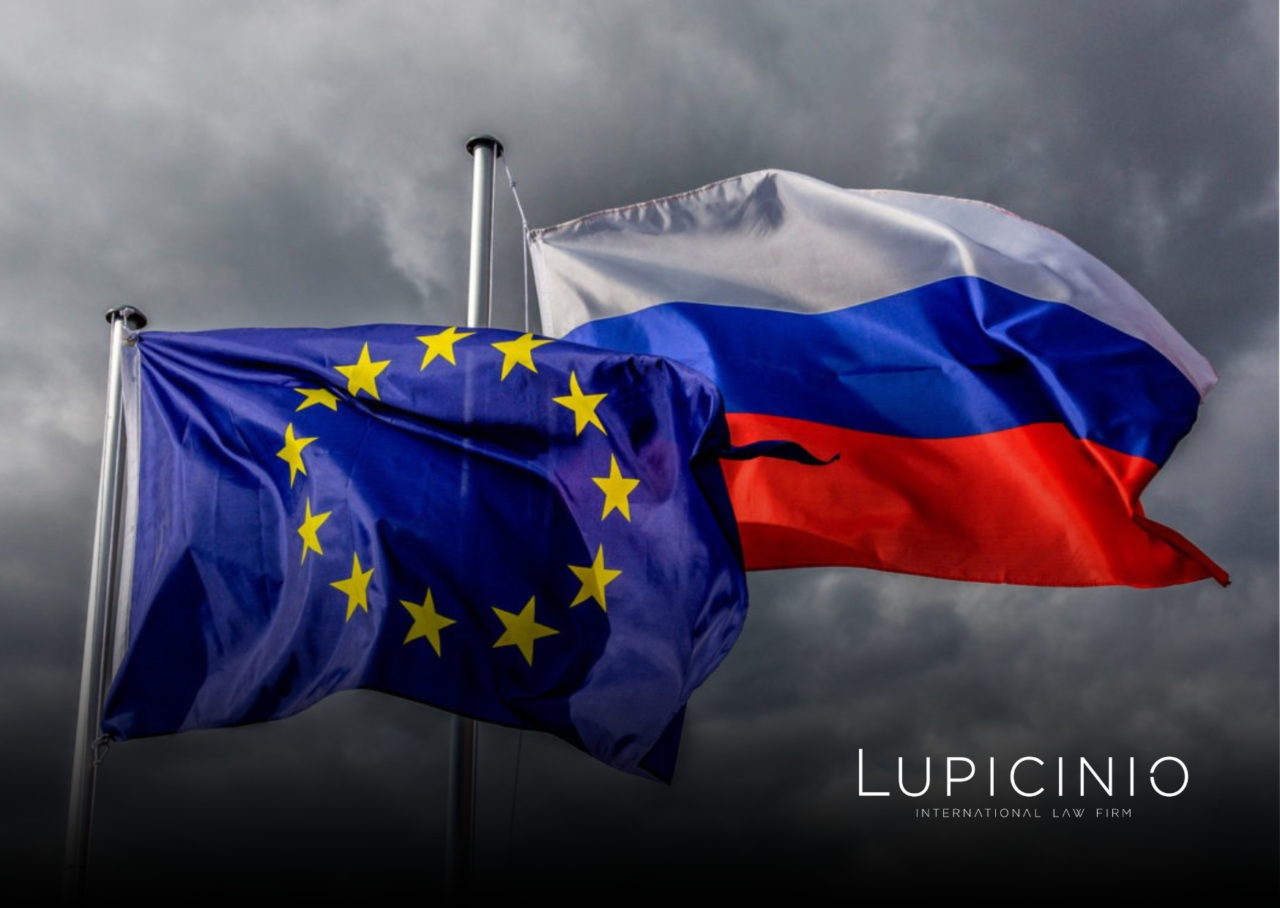The OJEU of December 2023 contains five provisions by which the EU has established a 12th package of sanctions on the Russian Federation. Specifically, these are Decision (CFSP) 2023/2871, Regulation (EU) 2023/2873 and Implementing Regulation (EU) 2023/2875 related to the adoption of restrictive measures against actions that undermine or threaten the territorial integrity, sovereignty and Ukraine’s independence and Decision (CFSP) 2023/2874 and Regulation (EU) 2023/2878 related to restrictive measures due to Russia’s actions which destabilise the situation in Ukraine. Among all this wide-ranging new regulation, the following aspects have to be highlighted:
I. Introduction of a new category of legal persons whose property and assets may be frozen, namely entities established in Russia, previously controlled or owned by entities established in the EU, whose ownership or control has been compulsorily transferred by the Russian Government by any legislative measure. The property of natural or legal persons who have benefited from such transfer shall also be frozen, as well as the property of natural persons who have been appointed to be part of the governing bodies of such entities in Russia without the consent of the Union entities previously owned or controlled.
On the other hand, in respect of natural persons included in the Annex 1 of Regulation 269/2014, namely those who are subject to the freezing of their assets and the prohibition of making assets, an important clarification is made to the effect if any such persons dies while subject to the mentioned restrictions, the Council may maintain their names on the list in Annex 1 if their removal would risk undermining the objectives of the restrictive measures of the Union, due to the possibility that, otherwise, the concerned assets would be used to finance Russia’s military actions against Ukraine, and other actions undermining or threatening the territorial integrity, sovereignty and Ukraine’s independence. This new provision raises serious doubts in relation to its legality in that it may imply that sanctions against a natural person are passed on to their successors of heirs, even if they are not involved in actions against Ukraine. It is believed that this rule should be brought to an action of annulment when the occasion arises.
There are 61 natural persons included on the list of sanctioned persons whose assets have been frozen (several Belarusians, businessmen, members of the Russian Central Election Commission, etc.) and 86 legal persons (mainly companies related to the defence and telecommunication sectors, etc.).
II. II. The new European provisions put the emphasis on creating mechanisms and solutions designed to prevent the circumvention or avoidance of sanctions against Russia. Thus, as of 20 March 2024, European exporters when exporting to third countries, with the exception of partner states, the sensitive products and technologies listed in various annexes of Regulation (EU) 833/2014 will contractually prohibit the re-export to Russia or for use in Russia of such products or technologies. In addition, European exporters shall ensure that the agreement with the third country counterpart has appropriate corrective measures in case of non-compliance with the contractual obligation entered into and they shall report in case of non-compliance to the competent state authorities.
Products and technologies whose transit through Russia is prohibited are also extended.
The prohibition on the provision of services is also extended to include the supply of business management software and industrial design and manufacturing software.
As of 18 January 2024, Russians or natural persons residing in Russia are prohibited from owning or controlling, directly or indirectly, or holding any position in the governing bodies of a legal person incorporated under the law of a Member State of the Union that provides crypto-asset holding, account or custody services.
Legal persons, entities or bodies established in the European Union owned or controlled, directly or indirectly, having more of the 40 % of property rights by legal persons established in Russia or by Russian citizens or by natural persons resident in Russia will have from 1 May 2024 certain reporting obligations in terms of the transfer of funds out of the Union.
III. As regards to the import bans, the ban on diamonds is particularly important. It is prohibited the purchase, import or transfer of diamonds and products containing Russian diamonds or exported from Russia. The ban extends to transactions (technical assistance, brokering, etc.) relating to such goods. From 1 March 2024, the ban will cover the import of products processed in a third country which are composed of diamonds originating or exported from Russia that weigh 1.0 carat or more per diamond.
This latter ban from 1 September 2024 will affect diamonds weighing 0.5 carats or more or 0.1 grams per diamond.
IV. In the field of oil trade, a number of measures have been taken to strengthen controls on the price ceiling for oil of Russian origin; such as information-sharing obligations to facilitate the identification of the vessels and entities involved and the origin and destination of cargoes. Also rules on the transfer of tankers to third countries.
V. Finally, 29 entities have been added to the list of Russian legal entities directly supporting the Russian military-industrial complex, which are consequently subject to stricter restrictions on the export of dual-use goods and technologies or goods and technologies that could contribute to the technological upgrading of Russia’s defence and security sector.
Similarly, the list of items that contribute to Russia’s technological and military improvement and are therefore banned for export (lithium batteries, chemicals, thermostats, drone engines, etc.) has been extended.
The first consideration is that with this 12th package of sanctions the EU is reaching the limit of its ability to impose sanctions on the Russian Federation; the second one is that EU sanctions are having an increasingly negative effect on the European economy itself.
With the collaboration of José Luis Iriarte, Professor of International Private Law at the Universidad Pública de Navarra.
******
More information:
Lupicinio International Law Firm
C/ Villanueva 29
28001 Madrid
P: +34 91 436 00 90
info@lupicinio.com







